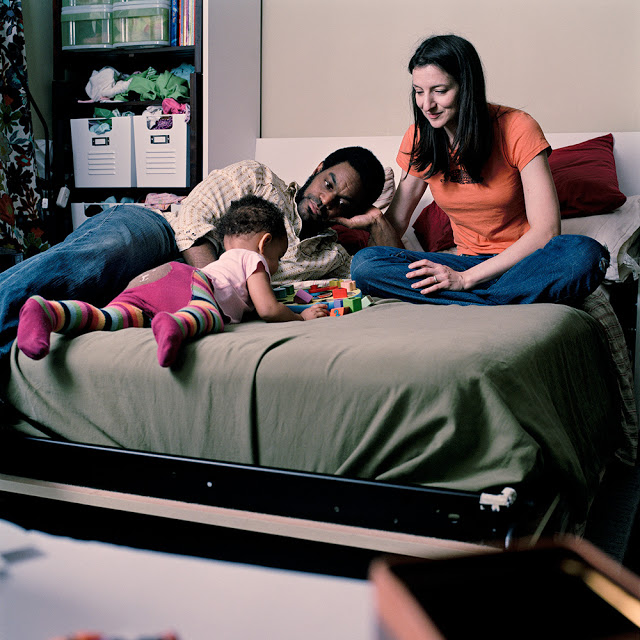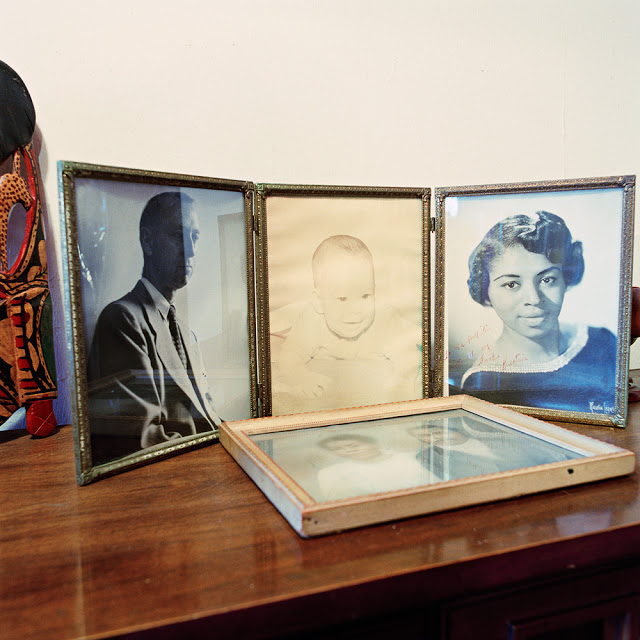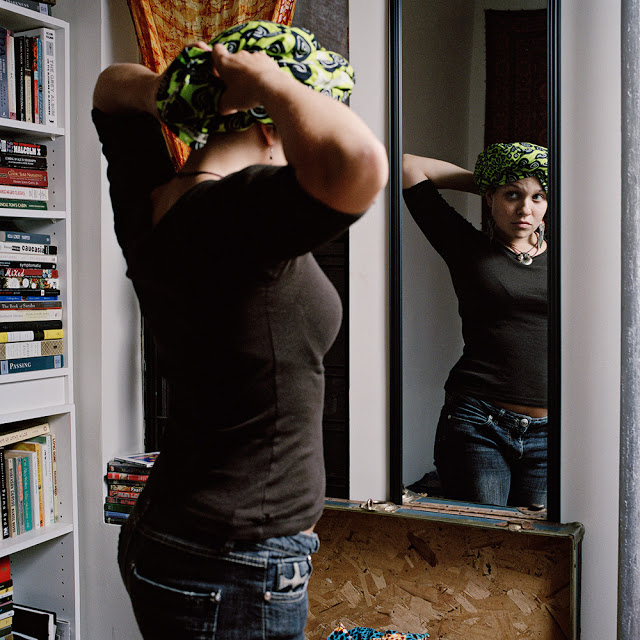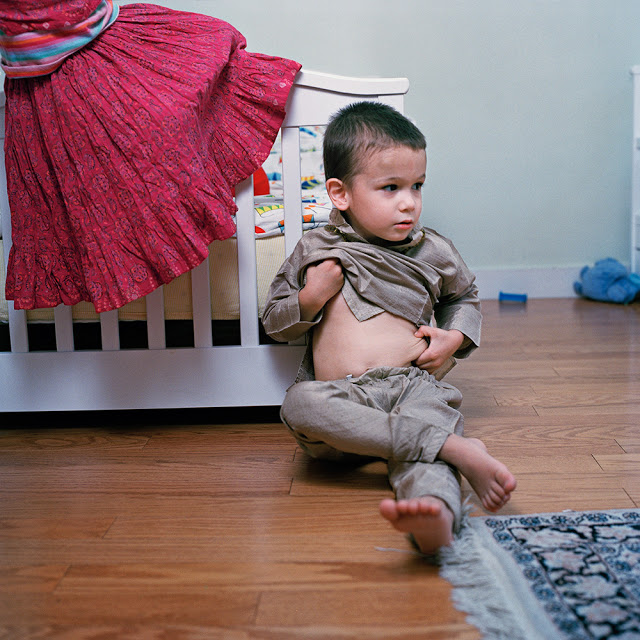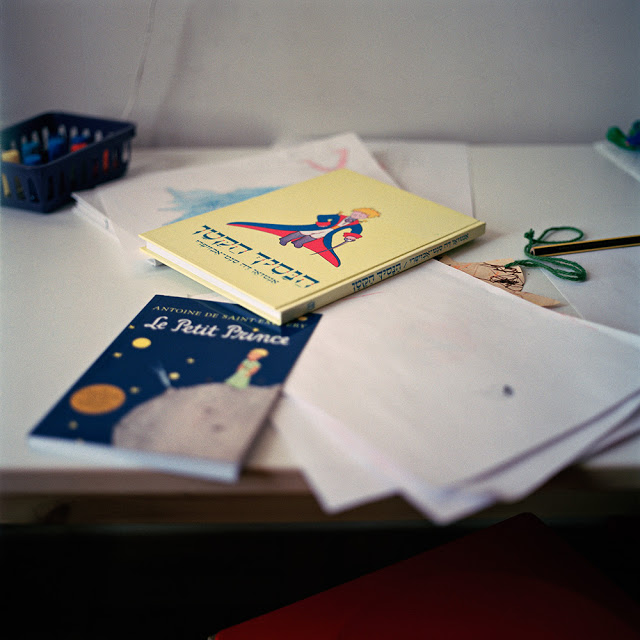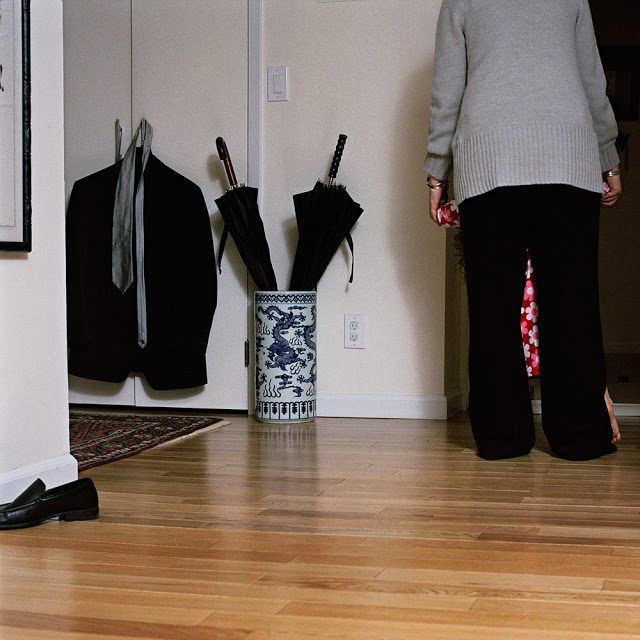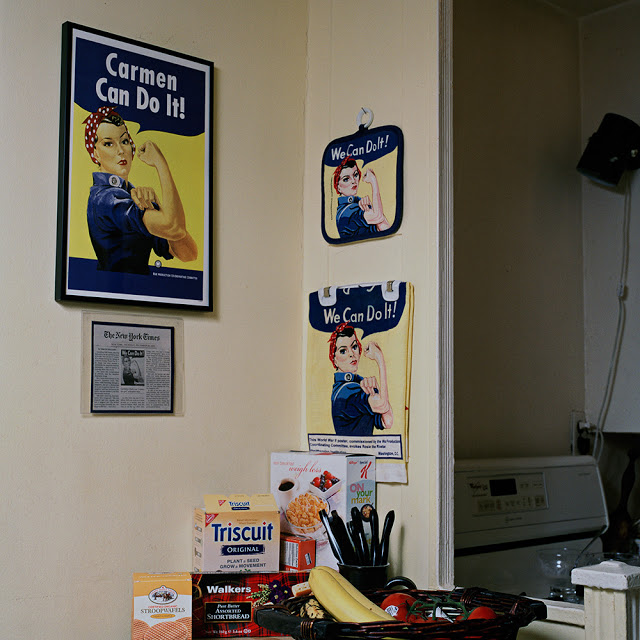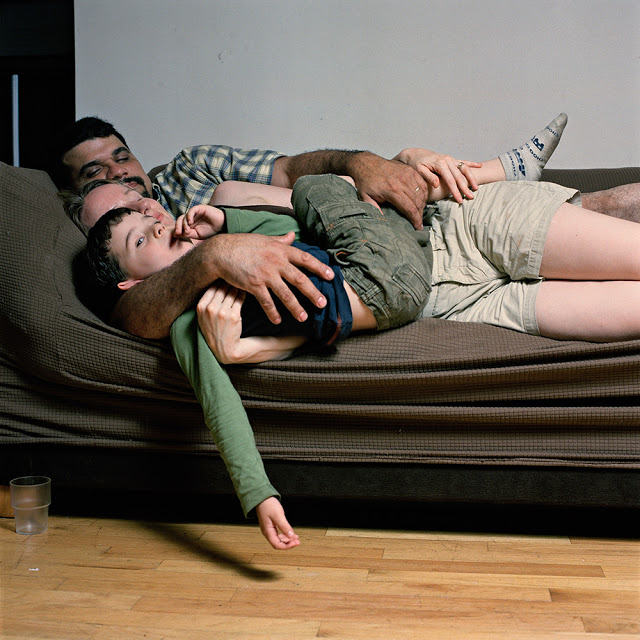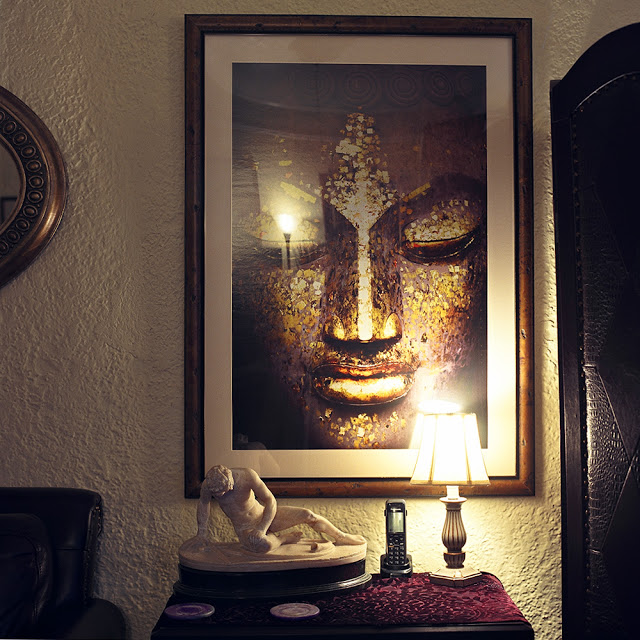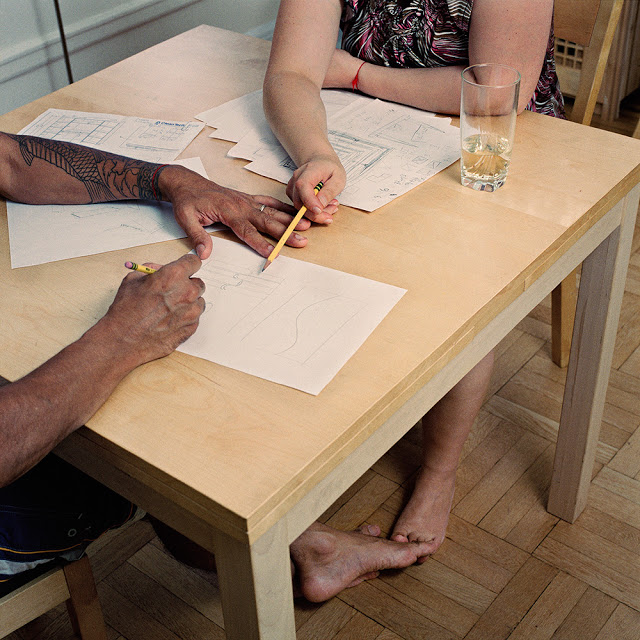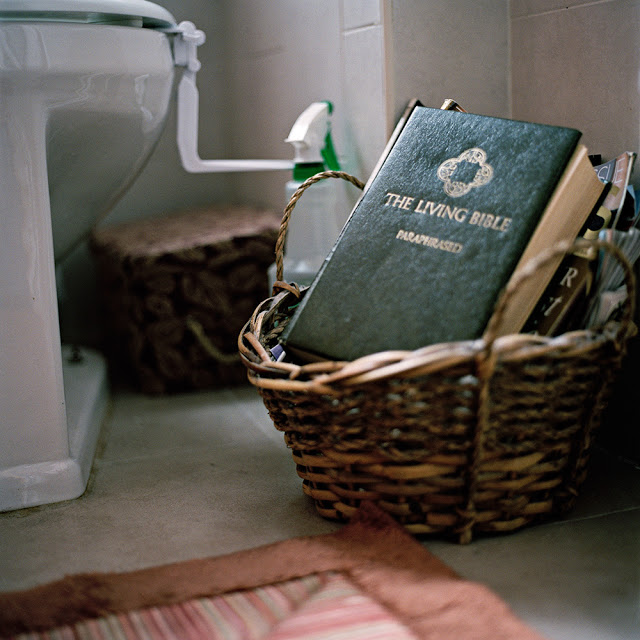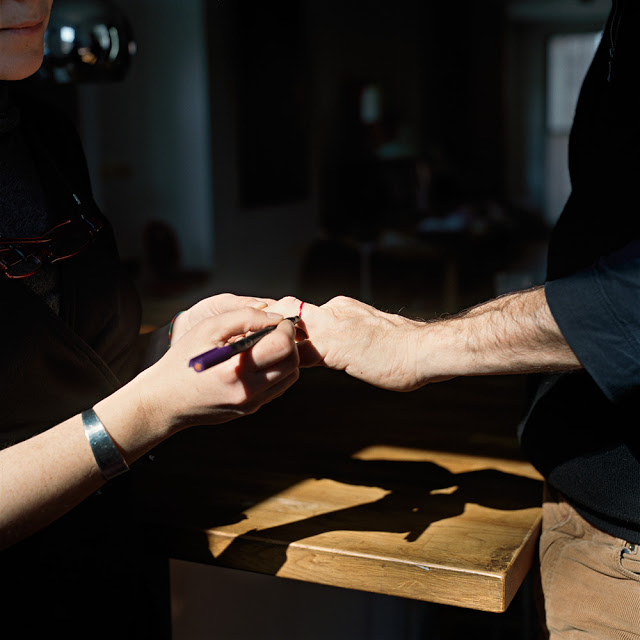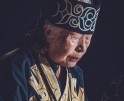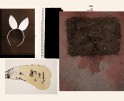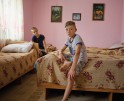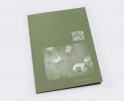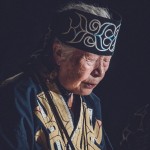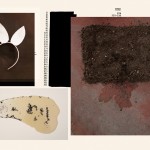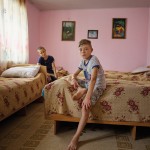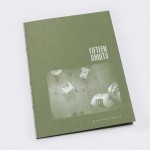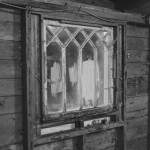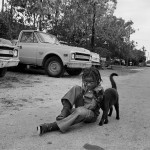Photolucida: Yael Ben-Zion: Intermarried
Today’s post is part of several weeks dedicated to work seen at Photolucida…
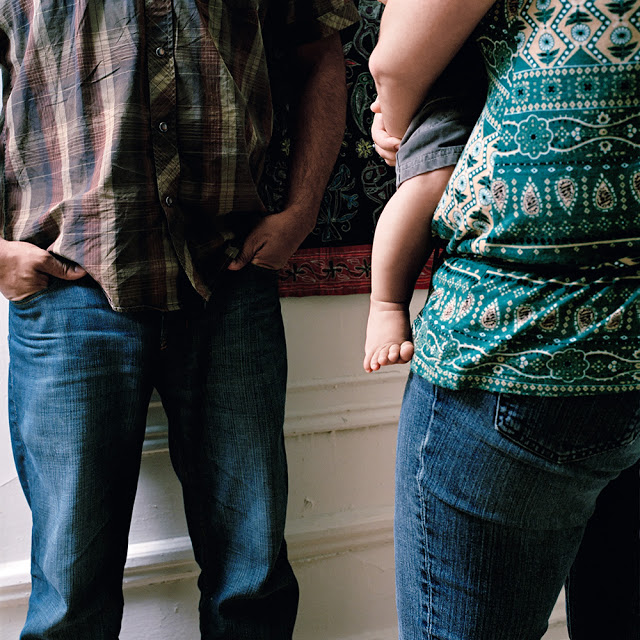
Patterns ©Yael Ben-Zion

Patterns ©Yael Ben-Zion
“We come from such strong cultures that define who we are as people – how we think, what we value, how we see the world – within the big umbrella of being “American.” There is not a lot of sameness in terms of our respective family dynamics or rituals.” (Michole)
In 2010, Yael Ben-Zion’s, first monograph, 5683 miles away (Kehrer), was well celebrated by being selected as one of photo-eye’s Best Books of 2010 and for the PDN Photo Annual 2011. It was also a nominee for the German Photo Book Award 2011. Her new project, Intermarried, will also be published by Kehrer in the fall of 2013. Yael is a universal thinker, born in Minneapolis, raised in Israel, and now living in New York.Images from Intermarried were recently included in Dimensions Variable: Multiracial Identity, an exhibition curated by Gabriel de Guzman at Rush Arts Gallery in NYC, and are currently included in NoMAA Visual Art Grantees Exhibition, curated by Rocio Aranda-Alvarado, at NoMAA Gallery in NYC, as well as in PPAC’s 4thAnnual Contemporary Photography Competition and Exhibition, juried by Lesley Martin and Andy Adams, which opened June 13, in Philadelphia.Yael is a graduate of the International Center of Photography’s General Studies Program. Prior to photography, she had a diverse legal career which included pursuing LL.M. and J.S.D. degrees at the Yale Law School. It was at Yale that she took her first formal photography class. Yael’s work has been exhibited in the United States and in Europe and she is the recipient of various grants and awards, including ICP’s Directors’ Scholarship Award, the International Photography Awards and recent grants from NoMAA and the Puffin Foundation. In 2007, her photograph Crash was selected for the cover of American Photography 23.
Intermarried
Intermarried is a photography-based project which explores the notion, and questions the implications, of intermarriage. I initiated the project in 2009 by posting a message on the board of my New York neighborhood’s online parent group inviting couples who define themselves as ‘mixed couples’ to participate. Being myself part of a ‘mixed couple’, I was interested in the many challenges faced by couples who choose to share their lives regardless of their different origins, ethnicities, races or religions. Drawing on the experience of the people who responded to my post, I have developed a narrative that deals with the multifaceted issues posed by intermarriage.
Murphy Bed ©Yael Ben-Zion
“To make any relationship work, you have to figure out how to make all your differences work well together and race, to me, is just one small part of that whole puzzle.” (Daria)
“The term “mixed” is strictly an outsider observation. It is a term that “others” would use to define what their eyes see. All couples, gay, straight, summer/winter … all get reduced to common life themes: time with each other, money, sex, children. All relationships are destined to become ordinary. Most people in “same/same” relationships would be surprised at how quickly “different” disappears and you become just two people trying to sustain friendship and happiness.” (Cedric)
Intermarried does not attempt to represent all kinds of intermarriages or illustrate what ‘mixed couples’ look like. Rather, I am interested in the experience of people who choose to live with someone who is not from their immediate social group and the challenges they face. The images, the titles, and the notes that accompany the work (which for the most part consist of excerpts from a questionnaire I asked my subjects to fill out) are intended to allude to such experience and challenges. Moreover, the project juxtaposes interfaith and interracial marriages in order to make viewers re-think their own preconception (i.e., why it is okay for a white person to marry a black person but not for a Jewish person to marry a non-Jew and vice versa). And this is maybe the main idea behind Intermarried – to create a platform for thinking and talking about issues that are very personal but have vast social and political implications.
Intermarried does not attempt to represent all kinds of intermarriages or illustrate what ‘mixed couples’ look like. Rather, I am interested in the experience of people who choose to live with someone who is not from their immediate social group and the challenges they face. The images, the titles, and the notes that accompany the work (which for the most part consist of excerpts from a questionnaire I asked my subjects to fill out) are intended to allude to such experience and challenges. Moreover, the project juxtaposes interfaith and interracial marriages in order to make viewers re-think their own preconception (i.e., why it is okay for a white person to marry a black person but not for a Jewish person to marry a non-Jew and vice versa). And this is maybe the main idea behind Intermarried – to create a platform for thinking and talking about issues that are very personal but have vast social and political implications.
Frames ©Yael Ben-Zion
Beatrice Rippy married Carroll Hollister in New York in 1959, one year after Mildred and Richard Loving got married in Washington, DC to evade the anti-miscegenation statutes of their home state, Virginia.
New York is one of the nine states in the US that never enacted anti-miscegenation laws.
Passing ©Yael Ben-Zion
“The discrimination I face as a low-visibility or “passing” person of color is very different from what visible and dark-skinned people experience, to the point of being incomparable. Racism is a structural social system of inequality with a long, cumulative history and a pervasive psychological effect on the lives and experiences of all people who live within it. As a “passing” person of color, I am able to avoid the majority of the structural race discrimination in this country.
Where I experience racism is in the more internal and interpersonal level. I hold an awareness of myself as a personal of color that inhibits my assimilation into racially hostile spaces that may otherwise include me. The term “inclusional racism” refers to incidents of white people assuming I am also white and making racist comments in my company. These incidents are alienating, and whether or not I speak out (“out myself”), it still damages any sense of trust or community I would feel with them. I have also experienced a sense of double-exclusion typical to mixed-race people; of not quite belonging to either side, and so, belonging to neither. I have often received an underlying distrust and exclusion on the part of black people who are uncomfortable with the skin privilege I possess, the way I have presented my identity, or what my identity represents to theirs.”(Aja)
Indian Wedding ©Yael Ben-Zion
The Little Prince ©Yael Ben-Zion
“We are coming from different countries, France and Israel. Obviously our mother tongues are different but it goes deeper than this. Our basic cultural backgrounds are different. And since Ben and Daniel were born, we got more opportunities to feel it. It always comes as an amusing surprise when we realize that we both used to watch a similar cartoon like “barbapapa” or enjoyed the same book. For some reason, I feel that our difference in terms of religion is part of these different cultural bags that we carry, but no more than that. And none of this really matters in our daily life, maybe because we are living in a third country. This is also why, although we have these different backgrounds, I don’t really feel that we are a mixed couple. If we are a couple it is because, like any other couple I assume, we are sharing the same ideas and views on what really matters to us, on what defines us as human beings, our core values, so it is hard to feel mixed. Now, I also understand why, in regard of statistics, society’s standards, or the views of some, we are a mixed couple. Basically, for me, we are a mixed couple per definition, but not much more than this.” (Ugo)
Umbrellas ©Yael Ben-Zion
“In my experience, a few of my friends have had strong negative reactions to my conversion, and that, in turn, seemed to influence what they thought of our relationship. From the outside, perhaps it seems that I was pressured into converting or that I only converted to make David happy – that it’s not “real.” Our Jewish friends all married other Jews and are raising their children within the wide spectrum of Jewish observance. Sometimes I feel that we are a little more under the microscope because I converted. I hear pretty often: “You don’t look Jewish!” or “But you don’t have a Jewish name!” I usually just shrug and say something like, “I guess you can never tell!”” (Sarah)
Jebena ©Yael Ben-Zion
“We don’t feel discriminated because of our marriage, but (sometimes) because of our skin color. Recently when we were working on the café, it was really noticeable that people were surprised that we were the owners, or that they sometimes didn’t expect us to be the owners, but rather workers.” (Sarina)
Carmen Can Do It! ©Yael Ben-Zion
Family ©Yael Ben-Zion
“You have to understand that my mother and Lazaro’s mother cannot communicate. My mother doesn’t speak Spanish and Lazaro’s mother doesn’t speak English. This bothers my mother greatly. She gets greatly offended if we speak Spanish in front of her. What she doesn’t understand is that sometimes I have to speak Spanish to Lazaro because he doesn’t always understand everything in English. The same thing applies when we are in Santo Domingo and he has to explain things to me in English because I’m not understanding the language there. But otherwise at this point in our relationship our families see that we love and are committed to each other and they’ve come to accept that our relationship is forever and they respect that. And of course, they all love our son.” (Jennifer)
Buddah ©Yael Ben-Zion
“Before Joselin and I met each other we had decided to become Buddhists – I had been practicing for 10 years and Joselin about 6 months. We were both chanting for our “life partner,” and we both used this exact phrase. Not a wife or lover, but life partner. We met doing volunteer work within the Buddhist community and I asked her if she had ever chanted for one hour straight. She hadn’t, so she came to my house one afternoon. I had every intention of asking her out on a date, which I did once we finished chanting. … I asked her to marry me one year later on the exact day of our first date. (Shawn)
Sketches ©Yael Ben-Zion
“We started talking and once I heard his accent I had to know where he was from – Brazil he said, which later on proved to be technically true, he really was an Uruguayan. On basis of common interest in furniture design the conversation took off and soon he was jotting my number down on a scrap of paper…
When people come from different places and cultures it is important to keep in mind we react to same things in different ways. It is an added layer of differences between men and women, older and younger, coming from poor or well-off families, having one partner working and the other staying home and all kinds of different ways which in a way make any relationship intermarriage-like.” (Ewelina)
The Living Bible Paraphased ©Yael Ben-Zion
“Both of our families have been very accepting. Even though our ethnicity is different, both of us grew up with extremely devote Christian parents. Knowing that we share our faith and were “raised in the church” become more important than our differences.” (Vanessa and Rick)
Sari scarf and doll house ©Yael Ben-Zion
“We each get to experience a different culture from what we grew up with. We have a much wider set of experiences that we could have had if we were each married to someone from our own ethnicity. So many aspects, big and small. Food, getting to visit India or Oregon. But also realizing that despite our upbringing across the world, there were a remarkable number of similarities. It is pretty scary how similar our parents are and how similar our experiences were growing up.” (Aditi and John)
Drawing Rings ©Yael Ben-Zion
“It was a very simple ceremony. One morning we went to NY city hall to get married. After debate we asked a friend to join us to be our witness - john had wanted to ask a passerby but I thought no one would believe we had got married if no familiar witness was there. We did not have rings. We had had a conversation about rings and John had said that in Scotland men do not wear ring… to me the ring was the visual symbol of our union. He agreed he would wear one but the purchase was postponed. Since drawing has always been my way of tackling the world I had the idea I would draw rings on our fingers with a red sharpie when we were asked to pass the rings on. The person who married us - a warm Latino woman - was very amused with our ‘rings’. She said she had seen everything before during ceremonies but never that…” (Jeanne)
Posts on Lenscratch may not be reproduced without the permission of the Lenscratch staff and the photographer.
Recommended
-
Shinichiro Nagasawa: The Bonin IslandersApril 2nd, 2024
-
The International Women in Photo Association Awards: Lorraine Turci: The Resilience of the CrowMarch 16th, 2024
-
The International Women in Photo Association Awards: Rayito Flores Pelcastre: Chirping of CricketsMarch 14th, 2024
-
The International Women in Photo Association Awards: Louise Amelie: What Does Migration Mean for those who Stay BehindMarch 12th, 2024
-
Brandon Tauszik: Fifteen VaultsMarch 3rd, 2024

